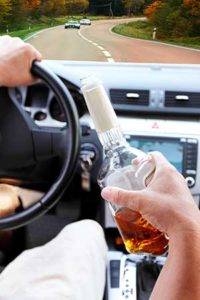
David Slepkow has authored a number of articles concerning drunk driving in Rhode Island. Below you will find articles related to dui/ dwi, breathalyzer refusal law as well as Drunk driving:
- Impaired Driving Statistics In Rhode Island
- RI drunk driving victim personal injury attorney
- By the Numbers: Massachusetts DUI Stats and Facts
- Rhode Island DUI Lawyer | Should I refuse a breathalyzer test in RI?
- Drunk Driving Accident and New Years Eve
This Drunk Driving (DUI) law post explains the law concerning drunk driving in Rhode Island and breathalyzer refusal litigation. This post answers the crucial question: Should a suspected criminal defendant refuse a breathalyzer request from the police. This DUI post examines whether or not a person should refuse to take a breathalyzer test upon request of a police officer in Rhode Island when a person is suspected of drunk driving. There are numerous social and legal implications related to this decision.
Are there any clear guidelines to determine if a suspected drunk driver should refuse a breathalyzer test?
- If you are 100 percent certain that you will pass the test then take it.
- If someone is injured or is killed in a motor vehicle, truck or car accident in which you have been drinking in the hours prior to the vehicular wreck then always refuse the Breathalyzer.
- If you already have a prior criminal drunk driving conviction within the past five years, then you must refuse the breathalyzer because you face minimum jail time.
- If you are in a profession in which a criminal conviction may hurt your career or subject you to professional discipline, i.e. lawyer, politician, teacher, then you probably should refuse.
Driving under the influence is a crime in every state in the United States. Rhode Island is not exception. According to Mothers Against Drunk Driving or MAAD, 27 people all across the United States die every day as a result of drunk driving. The following is an overview of impaired driving statistics in Rhode Island. If you or someone you love has been injured due to an impaired driver, it may be helpful to speak with a personal injury attorney for advice.

Impaired Driving Laws In Rhode Island
Rhode Island is known for its harsh penalties when it comes to those who drive intoxicated. In this state, penalties are based on the age of the offender and blood alcohol content levels. Drivers are arrested and charged with drunk driving if their blood alcohol content levels are measured at 0.08 percent or more. Those who are under the legal drinking age in Rhode Island can be charged with driving under the influence when blood alcohol content is measured at 0.02 to 0.08 percent ore more.
” The effects of specific drugs differ depending on how they act in the brain. For example, marijuana can slow reaction time, impair judgment of time and distance, and decrease coordination. Drivers who have used cocaine or methamphetamine can be aggressive and reckless when driving. Certain kinds of sedatives, called benzodiazepines, can cause dizziness and drowsiness. All of these impairments can lead to vehicle crashes. Research studies have shown negative effects of marijuana on drivers, including an increase in lane weaving, poor reaction time, and altered attention to the road. Use of alcohol with marijuana made drivers more impaired, causing even more lane weaving.1–3″ https://www.drugabuse.gov/publications/drugfacts/drugged-driving
Traffic Fatalities Due To drunk driving accidents
Traffic fatalities resulting from impaired driving in Rhode Island have fluctuated in the past several years. In 2016, there were 58 traffic fatalities in Rhode Island, of those deaths 22 were the result of driving with a blood alcohol content of over 0.08 percent. When it comes to drunk driving arrests, the most recent statistics from 2014 state there were 507 arrests made in Rhode Island within that calendar year. These statistics show that impaired driving is higher in Rhode Island than any other New England state.
Rhode Island Penalties For DUI
Rhode Island operates under the complied consent law, which means anyone who hold a drivers license in that state must submit to field sobriety testing. If a driver refuses they can face penalties such as:
- Community Service
- License Suspension
- $500.00 Highway Safety Assessment
- driving classes
Penalties for those who test with a BAC level of over 0.08 percent may include:
- Fines
- License Suspension
- Jail Time
- Community Service
- Drug And Alcohol Rehabilitation
The exact amount of fines and length of jail time depends on the age of the offender and the level of alcohol found within the blood at the time of testing. BAC levels are typically tested via breathalyzer.
DUI Statistics:
- “In 2013, 10,076 people were killed in alcohol-impaired driving crashes, accounting for nearly one-third (31%) of all traffic-related deaths in the United States.1
- Of the 1,149 traffic deaths among children ages 0 to 14 years in 2013, 200 (17%) involved an alcohol-impaired driver.1″ Center for disease Control
“In 2013, 10,076 people were killed in alcohol-impaired traffic crashes, accounting for 31 percent of all motor vehicle fatalities. Impaired driving continues to be a serious traffic safety and public health issue for states. According to AAA, alcohol is a factor in about 40 percent of traffic fatalities each year, and nearly 1.5 million people are arrested annually for driving under the influence of alcohol or drugs.” National Conference of State Legislatures, ALCOHOL IMPAIRED/DRUNK DRIVING
More criminal law information
